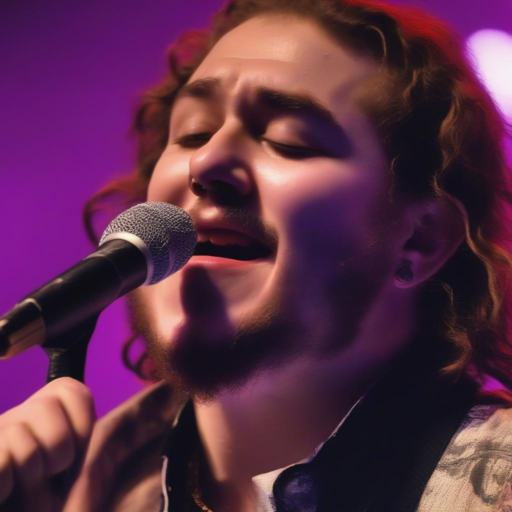The 70s marked a pivotal moment in music history, and while disco dominated the dance floors, the seeds of hip-hop were being sown. “70s Rapper Top Songs By Date” may seem like a niche search, but it opens a window into the fascinating pre-history of rap. While the term “rapper” wasn’t widely used then, spoken word artists, poets, and DJs were laying the groundwork for the genre we know and love today. Let’s delve into this era and explore the tracks that paved the way for hip-hop’s global takeover.
The Dawn of Rap: Proto-Hip-Hop in the 70s
The 70s weren’t quite the golden age of rap as we know it. However, the decade was crucial in laying the foundations. Think of it as the pre-game show before the main event. Artists like The Last Poets and Gil Scott-Heron blended spoken word poetry with funk and jazz rhythms, addressing social and political issues with a raw, uncompromising style. These pioneers weren’t necessarily “rappers” in the modern sense, but their influence on the genre is undeniable. They tackled themes of racism, poverty, and injustice, injecting a powerful message into their music that would become a hallmark of hip-hop.
Key Influences: Funk, Soul, and Disco
The music landscape of the 70s was a melting pot of genres. Funk, soul, and disco provided the vibrant backdrop for the nascent hip-hop scene. These genres contributed the infectious beats, rhythmic complexity, and danceable grooves that would become integral to rap music. Think James Brown’s tight, funky rhythms, or the soulful melodies of Curtis Mayfield. These elements seeped into the developing sound of proto-hip-hop, creating a unique blend of poetry, social commentary, and irresistible rhythms. Check out our list of top rap songs today to see how far the genre has evolved.
70s Rapper Top Songs by Date: A Timeline of Early Hip-Hop
Pinpointing specific “70s rapper top songs by date” requires a nuanced understanding of the era. Formal charts for hip-hop didn’t exist yet. However, we can trace the influence of key tracks. “The Revolution Will Not Be Televised” by Gil Scott-Heron (1970) is a prime example. Its powerful message and rhythmic delivery resonated deeply and are often cited as a precursor to rap. Similarly, The Last Poets’ “When the Revolution Comes” (1970) showcased their politically charged poetry over driving rhythms.
The Message: Precursors to Rap
These early tracks weren’t just songs; they were statements. They spoke to a generation disillusioned by social injustices and yearning for change. The music reflected the raw energy and frustration of the times, laying the groundwork for the explosive growth of hip-hop in the following decades. Want to explore the broader hip-hop landscape? Check out our top 2000 hip hop songs.
From Spoken Word to Rhythmic Innovation
The transition from spoken word poetry to the rhythmic complexity of later hip-hop was gradual. DJs began experimenting with extending instrumental breaks, creating a continuous loop of beats for dancers. This innovation, pioneered by DJs like Kool Herc, would become a defining feature of hip-hop, providing the rhythmic foundation for MCs to rhyme over.
“I remember hearing those early spoken word pieces and thinking, ‘This is powerful, this is different,'” recalls fictional music historian Dr. Yolanda Jackson. “The raw emotion and the rhythm, it was captivating. You could feel the energy building, the shift towards something new.”
The Legacy of 70s Proto-Hip-Hop
While the 70s might not have produced chart-topping “rappers” in the contemporary sense, the era’s musical innovations and social commentary laid the groundwork for hip-hop’s explosion in the 80s and beyond. The spoken word artists, poets, and DJs of the 70s planted the seeds that would blossom into one of the most influential musical genres of all time. Looking for some classic rock? Check out our list of aerosmith songs top 20.
The 70s showcased a unique blend of social consciousness and musical experimentation that set the stage for the evolution of hip-hop. From Gil Scott-Heron’s poignant social commentary to the innovative DJing of Kool Herc, the groundwork was laid for what would become a global phenomenon. “70s rapper top songs by date” offers a glimpse into the fascinating pre-history of rap, reminding us of the roots and influences that shaped this powerful and dynamic genre.
FAQ
- Who are considered the precursors of rap in the 70s?
- What are some key proto-hip-hop songs from the 1970s?
- How did funk, soul, and disco influence the development of hip-hop?
- What role did DJs play in the evolution of hip-hop in the 70s?
- How did the social and political climate of the 70s influence the music?
- Where can I find more information on 70s music and its impact on hip-hop?
- What resources are available to explore the music of The Last Poets and Gil Scott-Heron?
For further assistance, contact us at Email: contact@truykich2.net, or visit our office at Constellation Blvd, Suite 100, Los Angeles, CA 90067, USA. Our customer service team is available 24/7.
